5. Quentin Tarantino – Jackie Brown
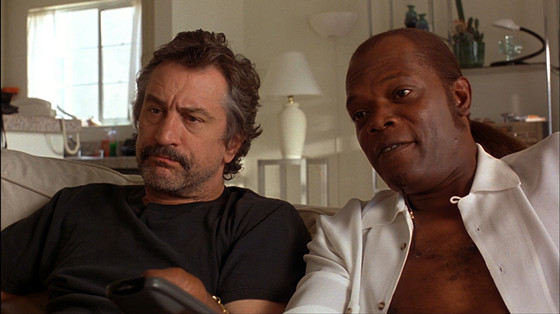
Tarantino is quoted as saying that if someone tells him Jackie Brown is their favorite of his, then he knows they probably don’t like his stuff. Well, I can only speak for myself, but I really like his stuff, and Jackie Brown is still my favorite.
His only film that isn’t an original script, Jackie Brown is adapted from Elmore Leanard’s novel “Rum Punch” and stars Pam Grier as the titular character. Sam Jackson, in what has to be one of his most over-looked performances, plays Ordell Robbie – a ponytail wearing, screwdriver drinking drug dealer, and just all-around bad motherfucker (no matching wallet, though).
You expect this Quentin Tarantino, though. What you might not expect is the emotional depth that Jackie Brown has. Alongside Pam Grier, a beautiful but aging star of many Blaxploitation films, is Robert Forster, another brilliant actor who is entering his twilight years. This dynamic, combined with Tarantino’s typical mastery of film form, sets up a narrative about not just about race, but about getting older.
Grier and Forster share a moment at the film’s conclusion that is easily the most touching in Tarantino’s filmography. Jackie Brown may not have had the influence on pop culture as Pulp Fiction has had, but it’s as good anything he’s ever done.
4. Jim Jarmusch – Mystery Train
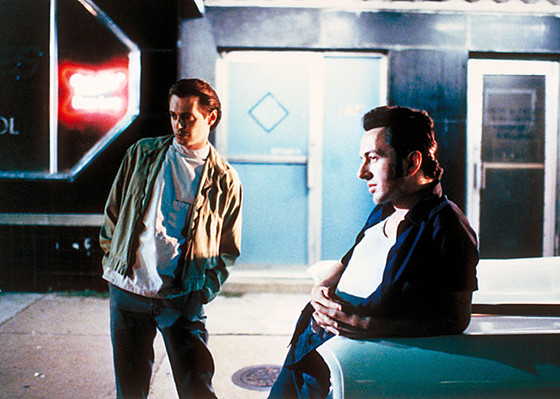
The man known for his cool, off-beat style has had an incredible career, and if Paterson is any indication it’s not slowing down any time soon. I’m not sure there’s one film that stands out as his most critically acclaimed – perhaps it’s Stranger Than Paradise, Down By Law, or even the aforementioned Paterson – but I’m fairly confident it isn’t Mystery Train.
And this is a shame, because Mystery Train is really Jarmusch at his American mythology deconstructing best. Set in Memphis, Jarmusch has Elvis literally haunt his picture, which serves as a provocative juxtaposition to one of the film’s storylines in which a young Japanese man obsesses over Carl Perkins.
The idea of “America” is such a vast and seemingly intangible subject for one film to cover, yet this strange film filled with deadpan humor and a side of serious drama somehow captures it. It’s what Jarmusch has been doing his entire career, and it never felt more truthful than in Mystery Train.
3. Richard Linklater – Before Sunset
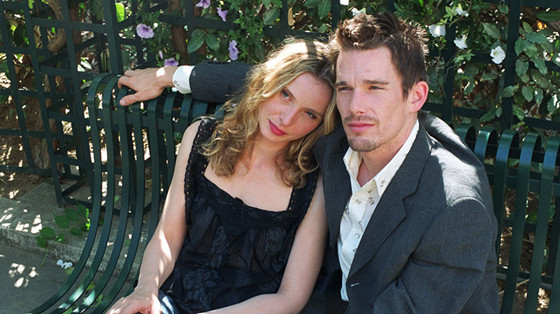
The critical consensus and heap of award nominations suggest that Boyhood is Linklater’s best film. Some even call it his magnum opus. It certainly is an inventive and ambitious film about childhood and parenting, but it’s not his best. That title belongs to his real-time, 80-minute romantic masterpiece Before Sunset.
Nine years after spending a magical day together in Vienna, Jesse (Ethan Hawke) and Celine (Julie Delpy) reconnect in Paris. Their conversations about life and love start out innocuously enough, but it becomes clear after a while this is more than a friendly reunion.
Time has always been the constant subject matter for Richard Linklater, and he’s never dealt with it more powerfully than in Before Sunset. Whether it’s the smallest gesture, or the longing felt over the course of years, the mysterious force of time is explored here in the most beautiful way imaginable.
2. Eric Rohmer – Pauline at the Beach
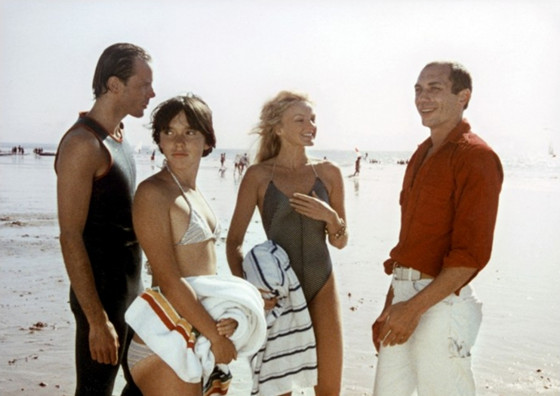
Godard and Truffaut may be the big names of the French New Wave, but it’s Rohmer who had the most consistent career. Within his filmography, My Night at Maud’s garnered the most worldwide acclaim, even winning an Oscar for Best Foreign Language film. What’s funny is I don’t even think Maud is the best of his Moral Tales, let alone his best overall.
The director famous for films about young people in love, with long takes of philosophical dialogue, never made one better than Pauline at the Beach. Now he did make others just as good, but they’re all better than My Night at Maud’s. Pauline is my pick, as it strikes me as the perfect blend of everything he does well. Insightful dialogue, gorgeous yet un-showy cinematography, and natural performances from very attractive people.
I’m paraphrasing, but Roger Ebert has referred to a lot of Rohmer’s work as genuine and smart versions of Hollywood rom-coms. It’s reductive but kind of true. The plot of Pauline at the Beach for instance has both miscommunication and deception, staples of the American Rom-com, but here it never feels silly or trite. It’s just there to move the characters around enough so we can get to know them. To see how they handle different situations.
What Rohmer finds in this film is that love confounds us at all ages. Being older doesn’t mean you’re any wiser in matters of the heart.
1. Stanley Kubrick – Eyes Wide Shut
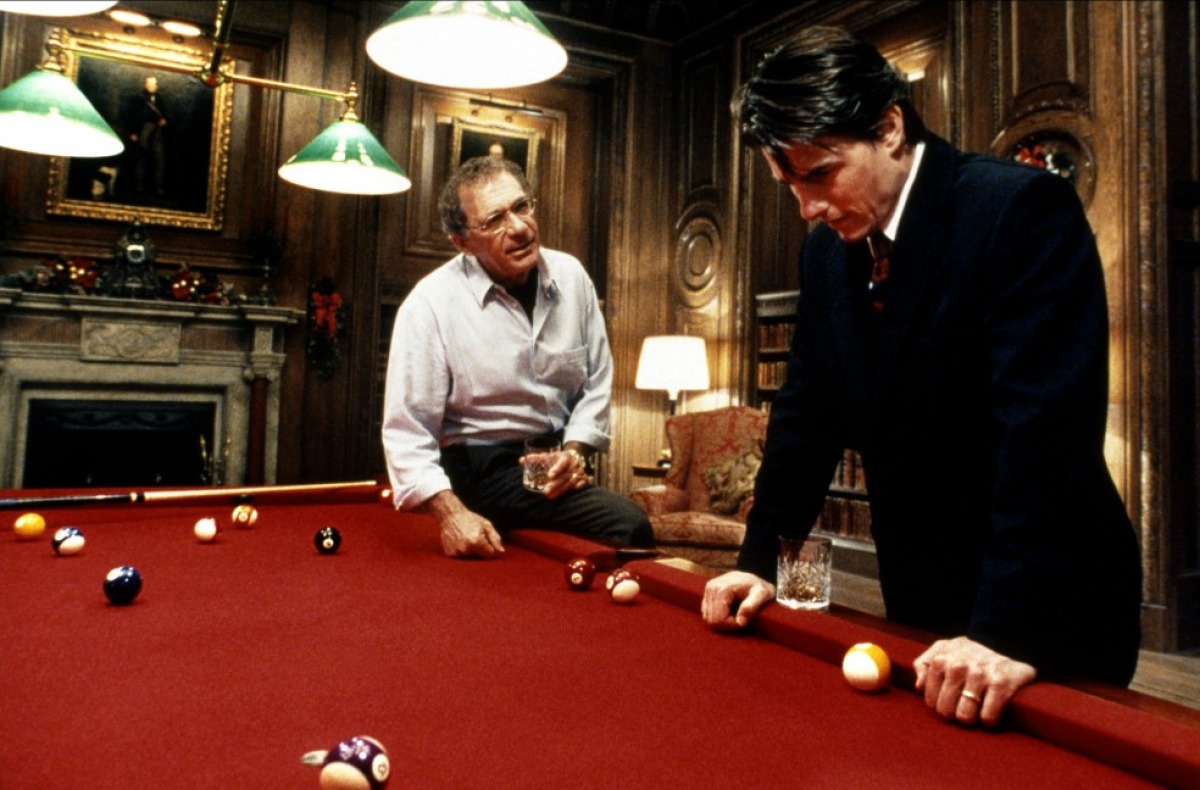
I know, I know. Here’s the thing. Kubrick had such a strong career, you could pick virtually any of his films as the best and make a good case. My pick isn’t a knock on 2001, Dr. Strangelove, or any number of critically acclaimed films from his oeuvre. Eyes Wide Shut, though, is inarguably one of his lesser regarded films, so I’m here to stick up for it.
Beyond the sexual odyssey Tom Cruise embarks on, class is something that pervades the entire film. Yes, Cruise experiences jealousy and sexual frustration, but really he’s a guy that wants status. His desire to get into the sex club has just as much, if not more, to do with dissatisfaction with social status than anything. He wants respect, something he feels his peers have more of them him. The way Kubrick blends these themes is brilliant, creating as dense and nuanced a narrative as any of his other masterpieces.
It also has possibly the greatest closing line I’ve heard, in part because it doesn’t just mark the end the film, but a career. A career which explored the darkness and ridiculousness of everything, so it’s only fitting that it should culminate in the most deliciously sardonic line of dialogue I can think of.